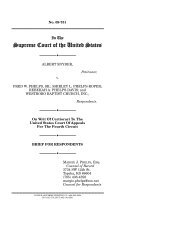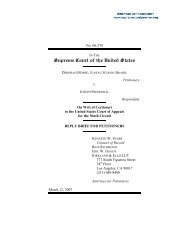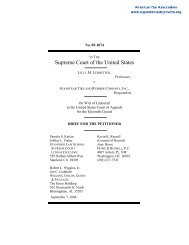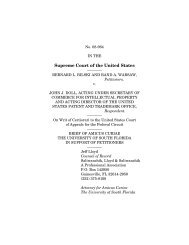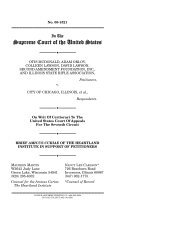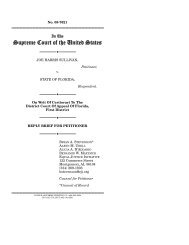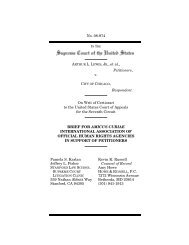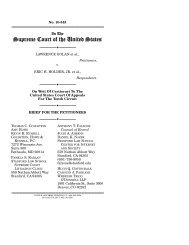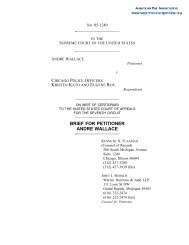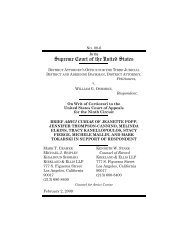Brief of respondent for Florida v. Powell, 08-1175 - Oyez
Brief of respondent for Florida v. Powell, 08-1175 - Oyez
Brief of respondent for Florida v. Powell, 08-1175 - Oyez
Create successful ePaper yourself
Turn your PDF publications into a flip-book with our unique Google optimized e-Paper software.
11<br />
SUMMARY OF ARGUMENT<br />
I. This Court should dismiss the writ <strong>of</strong> certiorari<br />
as improvidently granted because the decision<br />
below clearly and explicitly rests on independent and<br />
adequate state law grounds. The <strong>Florida</strong> Supreme<br />
Court held that <strong>Powell</strong>’s statements to police were<br />
inadmissible because the warnings read to him were<br />
deficient under “article I, section 9 <strong>of</strong> the <strong>Florida</strong> Constitution.”<br />
JA 174; accord JA 157-58, 164, 170. That<br />
holding is independent <strong>of</strong> the court’s separate analysis<br />
finding the warnings invalid under Miranda. JA 174.<br />
As required by Michigan v. Long, the independence and<br />
adequacy <strong>of</strong> the state law ground here is “clear from the<br />
face <strong>of</strong> the opinion” and the <strong>Florida</strong> Supreme Court<br />
repeatedly made a “plain statement” that its decision<br />
rested on state law grounds. 463 U.S. 1032, 1040-41<br />
(1983).<br />
II. If the Court reaches the merits, it should<br />
affirm the decision below. The parties and amicus<br />
curiae all agree that suspects possess the right to<br />
have an attorney present during police interrogation.<br />
Br. 12; SG Br. 7-8. We all agree that Miranda requires<br />
police to convey this right to suspects. Br. 10-11; SG Br.<br />
12. And we all agree that in determining whether a<br />
warning adequately conveyed this right, a reviewing<br />
court should focus on the substance <strong>of</strong> the warning<br />
and not demand the use <strong>of</strong> specific words. Br. 12, 16-<br />
17; SG Br. 18. Our disagreement concerns whether a<br />
warning that advises <strong>of</strong> a right to talk to a lawyer<br />
be<strong>for</strong>e questioning suffices to warn the suspect that<br />
he has the right to have the lawyer present with him<br />
during the interrogation.



